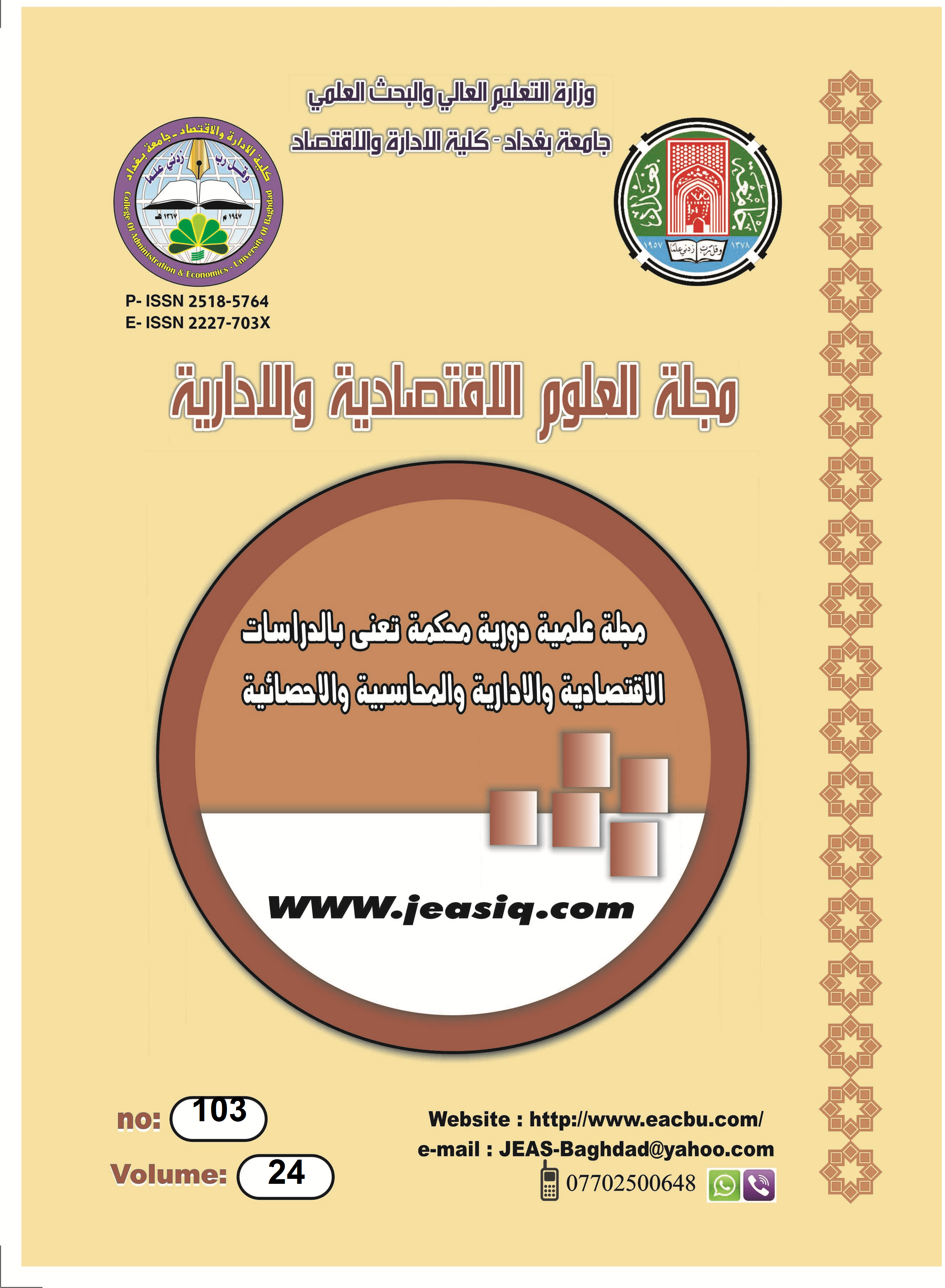Abstract
Several studies have indicated that more than 600 cities in the world (intermas of rapid growth and development) will generate about 60% of international economic growth between 2010 and 2025 . by 2025 , 66% of the worlds population will live in urban areas the management of cities will face challenges that accompany this increase in the population which requires preparing to face these challenges and problems and the need to provide the aim of the research to know the readiness of Baghdad city to implement the strategies of urban management throught on asmple representing the ( Advisiry group for the comprechnsive development plan for the city of Baghdad 2030 and its supporters ) in the municipality of Baghdad and the number of ( 51) people . and used several statit call means to process the information,of which is the percentages to prescribe the study sample , mediary and bange , rang multiple decline and the factors analysis . Strating for two kypo theses : There is correlative connection of incovporeal evidence between all the study variables and influencp connection of incorporeal evidence between the whole study variables and the study has arrived to collection of conclusions , the most important of the success of urban management strategies that regires the interaction of all strategies . The necessary necessities for life such population (proper food , drinking water , energy) , and mast strive to achieve sustainability in the field (Economic , social and environmental) and infrastructure development and control of the level of traffic congestion and pollution to all of this require substantial improvements by cities in how to operate resouces efficiently effective and rational urban management has become one of the most important reqairements and needs of to days cities and the future.
Keywords
: urban management strategies
Abstract
اشارت عدة دراسات بأن اكثر من ( 600 ) مدينة في العالم ( من حيث سرعة النمو والتطور ) ستكون مولدة لحوالي 60% من النمو الاقتصادي الدولي بين عامي 2010 – 2025 وبحلول عام 2050 سيكون هناك مايقدر بنسبة 66% من سكان العالم يعيشون في مناطق حضرية . من هنا ستواجه الادارة في المدن تحديات ترافق هذه الزيادة في عدد السكان مما يتطلب الاستعداد لمواجهة هذه التحديات والمشاكل وضرورة توفير المستلزمات الضرورية للحياة لهولاء السكان مثل ( الغذاء السليم ، الماء الصالح للشرب ، الطاقة ) . والبحث عن طرق تساهم في ادارة كفوءة للموارد والبنى التحتية واصبحت الادارة الحضرية الفاعلة والرشيدة لهم من اهم متطلبات واحتياجات مدن اليوم والمستقبل . يهدف البحث الى معرفة جاهزية مدينة بغداد لتطبيق استراتيجيات الادارة الحضرية وذلك من خلال عينة تمثل الفريق الاستشاري للمخطط الانمائي الشامل لمدينة بغداد 2030 ومسانديه ، في امانة بغداد والبالغ عددهم ( 51 ) شخصاً . وقد تم جمع البيانات عن طريق ادوات عدة هي الاستبانة والمقابلات الشخصية ، واستخدمت عدد من الوسائل الاحصائية لمعالجة المعلومات منها النسب المئوية ، الوسيط والمدى لتحديد الاهمية النسبية ومعامل التحديد الزائف والانحدار المتعدد والتحليل العاملي لاختيار فرضيات الدراسة التي تنص هناك علاقة ارتباط ذات دلالة معنوية بين متغيرات الدراسة كافة . وهناك علاقة تأثير ذات دلالة معنوية بين متغيرات الدراسة طاقة . وتوصلت الدراسة الى مجموعة من الاستنتاجات من اهمها الحكم على نجاح او فشل استراتيجيات الادارة الحضرية يستلزم تفاعل جميع الاستراتيجيات .
Keywords
الاستراتيجية والادارة الحضرية.
